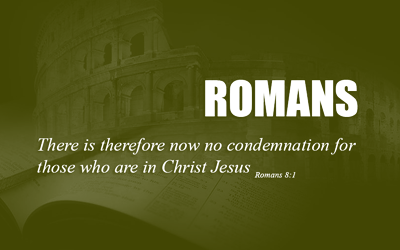Romans 4:25-5:5
Why did Christ die? The hope of God’s glory. From sufering to hope. True hope.
(Bấm vào đây để đọc tiếng Việt)
WHY DID CHRIST DIE?
 "25He was given over because of our transgressions and was raised for the sake of our justification. (Romans 4:25)
"25He was given over because of our transgressions and was raised for the sake of our justification. (Romans 4:25)
Consider the following verse, which is frequently misinterpreted and misapplied:
But he was wounded for our transgressions, he was bruised for our iniquities: the chastisement of our peace was upon him; and with his stripes we are healed (Isaiah 53:5—KJV).
The word “healed” is frequently misunderstood in this verse. Many people interpret it to mean physical healing, but this is far from the case because it refers to the restoration of our broken relationship with God.
If we read Isaiah in light of Romans 4:25, the “stripes” that Jesus bore on our behalf were “for our transgressions” and “for the sake of our justification.” Jesus did not have to die for our physical and temporal healing because, according to his sovereign will, he healed many people before the cross. What physical miracles were more powerful than the act of creation? But it was only through the cross that he was able to perform the ultimate miracle of reconciling mankind to himself.
When many unscrupulous people use the truth of Christ’s death to exploit gullible believers, they give people false hopes that will eventually disappoint them. On the contrary, as gospel ministers, we should always keep the true meaning of the cross in mind.
So the gospel is not about praise and worship, prayer, fasting, obedience, observances, prophecies, demon casting, fund raising, communion, or any of the other thousands of activities on which some people base their entire ministry. They are not the reasons Christ came into the world. He came to atone for your sins as well as your righteousness. In other words, it is what Christ has done, not what you do.
THE HOPE OF GOD’S GLORY
“1Therefore, since we have been declared righteous by faith, we have peace with God through our Lord Jesus Christ, 2through whom we have also obtained access by faith into this grace in which we stand, and we rejoice in the hope of God’s glory. (Romans 5:1-2)
Aside from the reasons stated in Romans 4:25, another reason for Christ’s death on the cross is that we may have “peace with God.” Hopefully, among the many things that concern you in this world, this is the goal that occupies your hearts and minds the most.
What is “the hope of God’s glory,” as Paul says in verse 2, in which we should rejoice? This is a difficult concept to grasp because it pertains to a realm to which we do not yet belong. A theologian can wax eloquent about its significance, but it is all speculation at this point in space and time.
Is it God’s glory we seek, or the former glory that was lost in the Garden of Eden but will be restored to us when we put on immortality? Whatever it is, it should take our gaze away from this world and toward the next.
If in this life only we have hope in Christ, we are of all men most miserable. (1 Corinthians 15:19—KJV)
Our prayers can reveal a lot about where or in whom we put our trust.
FROM SUFFERING TO HOPE
“3Not only this, but we also rejoice in sufferings, knowing that suffering produces endurance, 4and endurance, character, and character, hope. (Romans 5:3-4)
Wouldn’t it be wonderful if we could achieve substantial rewards without enduring hardship? However, the reality is that unfavorable circumstances are often necessary to bring about positive transformations, just as it is through suffering that hope emerges.
TRUE HOPE
“5And hope does not disappoint, because the love of God has been poured out in our hearts through the Holy Spirit who was given to us. (Romans 5:5)
Hope does not disappoint
This precept is only valid if your hope is founded on what God has promised. He never promised health, wealth, or any other temporal blessings available on this side of heaven. He, on the other hand, promised eternal life to those who believe in the One he sent. As a result, this hope will not be dashed because God will see it through.
The love of God
How should believers live for the remainder of their earthly journey? Who should they look to for guidance? What about the law and its commandments? Or someone promised by God through the prophet Jeremiah?
31“The days are coming,” declares the Lord, “when I will make a new covenant with the people of Israel and with the people of Judah. 32It will not be like the covenant I made with their ancestors when I took them by the hand to lead them out of Egypt, because they broke my covenant, though I was a husband to them,” declares the Lord. 33“This is the covenant I will make with the people of Israel after that time,” declares the Lord. “I will put my law in their minds and write it on their hearts. I will be their God, and they will be my people. 34No longer will they teach their neighbor, or say to one another, ‘Know the Lord,’ because they will all know me, from the least of them to the greatest,” declares the Lord. “For I will forgive their wickedness and will remember their sins no more.” (Jeremiah 31:31-34)
There is so much to unpack in these verses.
The new covenant will be different from the old one that God made with Israel’s forefathers. The old one was written on stone tablets, but the new one will be written in the hearts of believers. This new law of the Spirit of life (Romans 8:2) is given to us by the Holy Spirit, who will speak to us in a still small voice from Zion rather than the thunderous sound that shook Mount Sinai. And God removes a man’s authority to teach others from the external law, instead bestowing the indwelling Holy Spirit on them to guide them for the rest of their lives.
Even better, the second person of the Trinity assures them in their hearts that God “will remember their sins no more.” This is why we can look forward to meeting God with hope rather than fear “in the hope of God’s glory”.
That is how God manifested his love in our hearts. Remember how, earlier in chapter 2, verse 4, Paul reminded the Romans that it was God’s love that brought them to repentance? (Romans 2:4) While the law only serves to incite sinful desires in their hearts (Romans 7:5).
Nghi Nguyen
- Scripture quoted by permission. All scripture quotations, unless otherwise indicated, are taken from the NET Bible® copyright ©1996-2006 by Biblical Studies Press, L.L.C. All rights reserved.
Disclaimer: This is my own opinion on the topic, which does not necessarily reflect the church's theology, or beliefs of the individuals in it — Nghi Nguyen
